“Amateurs discuss tactics; professionals logistics.”
Napoleon
What can you learn, before and after your trip, just by tracking data?
Data: we’re just swimming in the stuff, frankly. Every year there’s some new revelation about how some government arm or corporation is misusing data that is freely given away, but that’s not why I’m here. I’m here to make that data work for you: make sure that your trip is exquisitely documented, so that you may have a good trip that you never forget! With proper uses of data science, you’ll be able to plan a grand trip and record it with metrics that put scrapbooking to shame.
Location, Timing,
Location,
Location…
Location,
Location…
The two ultimate questions, assuming that you aren’t yet an early retiree or digital nomad, are when you shall be taking your vacation, and for how long. In my case, I planned for a January departure and I had 14 days saved up, and used a federal holiday to make up the 15th.
I’d like to take a brief detour to promote the concept of three-week vacations. Two weeks, while being the standard trope for vacation times, simply isn’t enough to get your fill for many places. Three weeks, I found, allowed me to better unwind and throw myself into the trip for its own sake. Two weeks will have you scrambling all over, rushing from station to station, trying to throw yourself into everything and planning down to the minute. Three weeks can give you time to see it all.
On timing itself, know the nature of the work you’re leaving behind. Is some very critical, under-tested part of your code going live while you’re away? That might nag at you. If you’re the cog that keeps the machine running, leave detailed instructions with two other people so that there aren’t large fires to put out when you get back.
My ultimate thesis with regards to vacation timing, as with so much else, is this:
Build Slack into the System
- If one flight in the trip might be cancelled due to weather, make a nightly layover (I did, flying out of Colorado)
- If your checked bag might get lost (mine was for two days), pack a few essentials in your carry-on and stay in the first city for a few days
- This might be unique to my particular trip, but over-prepare on things to see. Sites might be closed, but a second-best site is better than nothing. And if you miss the second- and third-tier stuff because the first-tier stuff is open, you won’t feel so bad about it.
- Get the Google Translate package and destination keyboard downloaded. Don’t assume that everyone will speak English, in fact, assume the opposite.
The general idea of slack is that if one component goes awry, the whole system shouldn’t spin out of control. Some things you cannot prepare for, such as an air mishap or a global pandemic (barely missed that one!), but when something bad is out of your control and fairly likely to happen, you should take measures to prevent it from destroying your trip.
The principle of slack was vital to my trip success. Without it, failures would cascade and our lost bags would have never caught up to us, making for a miserable trip where my uncle and I would have had to re-buy all of our clothes and suitcases for the trip home.
Slack into Ambition
With slack on my side, I was free to be bold: we wanted to see ancient sites all over Greece, from where Alexander set off from to conquer the world to the site of the ancient Olympics to where Athenian democracy was developed.

How did we come up with this scheme for the road trip? Why, we cribbed the best parts from three road trip plans: two from The Michelin Green Guide, and one from Rick Steves guided tours. I won’t post the Michelin map for IP reasons, but suffice to say that it had one route that went south along the coast from Thessaloniki southbound, and one loop around Morea that was similar to the Rick Steves route. The odds that you’ll have a guide that meets your exact needs are moderate. The odds that you’ll be able to cobble something together are much higher! Additionally, crafting your own trip gives you much more pride when you plan it out.
The Joy of Spreadsheets
Ninety nine percent of all spreadsheets I have ever interacted with have been boring vehicles for translating boring data into my eyeballs. However, Google Sheets as a means of planning out trips is invaluable for the following reasons:
First, you can share information, leave comments and ensure that no day is unaccounted for. It’s simple to make rows for each day, columns for different components of each day, and to make sure that all components of each day are accounted for.
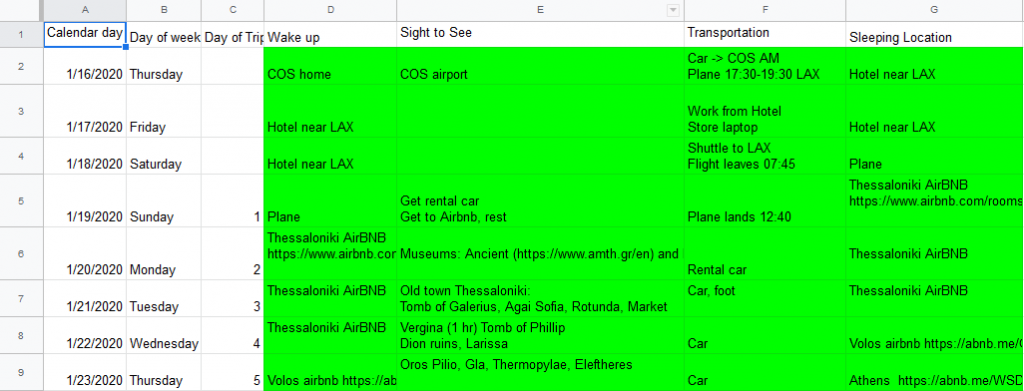
Second, it can be used to create an accountability/feedback system easily. See how all of the cells are now marked green? Originally, they were marked in black when they were loose ideas, changed to red when they were rounded out with links, turned to yellow by my uncle when he approved of each step, and then green when one of us purchased the item (where applicable).

Third, it can be used to track data during and after the trip. There will inevitably be differences between what you expect and what occurs. Sites will be closed, detours will be made, side areas will be found. You’ll want to take note of this. What if it snows? What if someone gets sick? Both of these happened to me, and the spreadsheet gave me an already-existing place to mark down these details.

This allowed us, in turn, to make beautiful charts describing why I didn’t recover from my sickness:
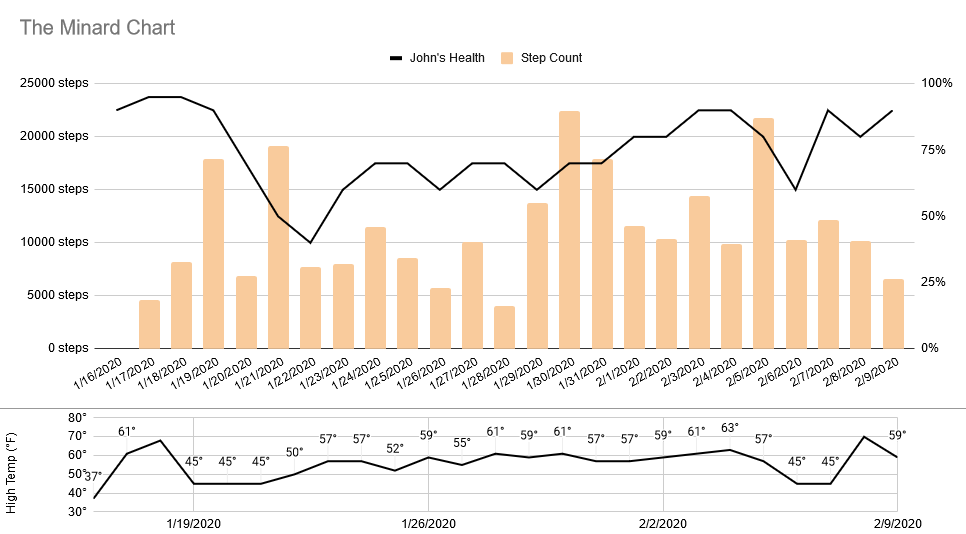
Turns out that temperature and step count from the prior day did play a very large role! Thank you for saving my trip, Red Bull. You were the wind beneath my wings.
Split your Costs
The other important thing for a vacation is tracking expenses. All the more if this is a joint venture between multiple adults, as opposed to a family trip. We used an app called SplitWise to log every expense.
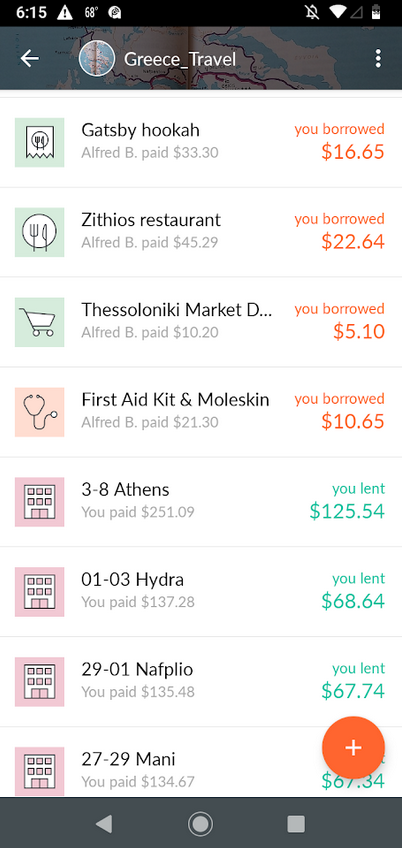
You likely have an aversion to talking about money, especially with friends, so here’s another incentive for tracking everything: writing down quick notes about what you ate and how it tasted. Think about it: even if you’re taking pictures of what you’re eating, you’re not capturing what the food’s called, and will never be able to look up a recipe when you get back. What a shame that would be! Also, unless the food’s spectacularly good or bad, you might forget the taste. The words about what stood out to your palate will help combine these things to take you back years from now.
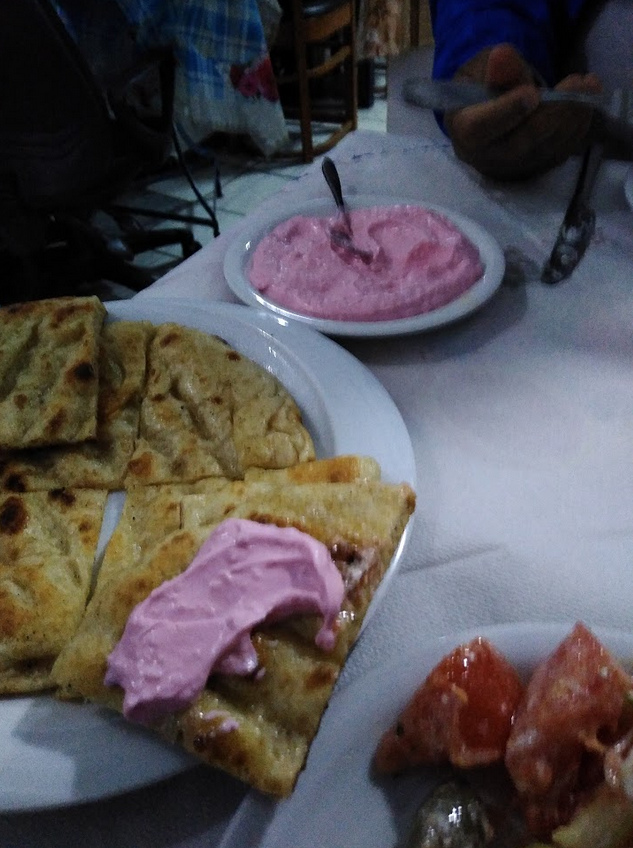
Keeping notes will make sure that all things are made equitable at the end of the trip. If one person wants to cover a particular meal or stay themselves, just write down the cost as $0.01 and write the real cost in the notes, if you so wish.
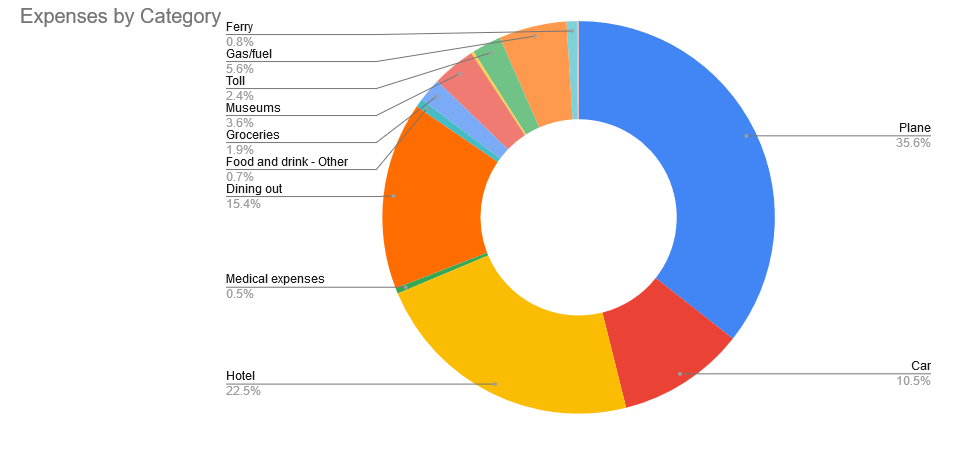
SplitWise also allows for spreadsheet export, so we made that into the second page of the spreadsheet where we’d done all of the planning. That’ll make it easier to fill in the “What did we do?” column on the first spreadsheet.
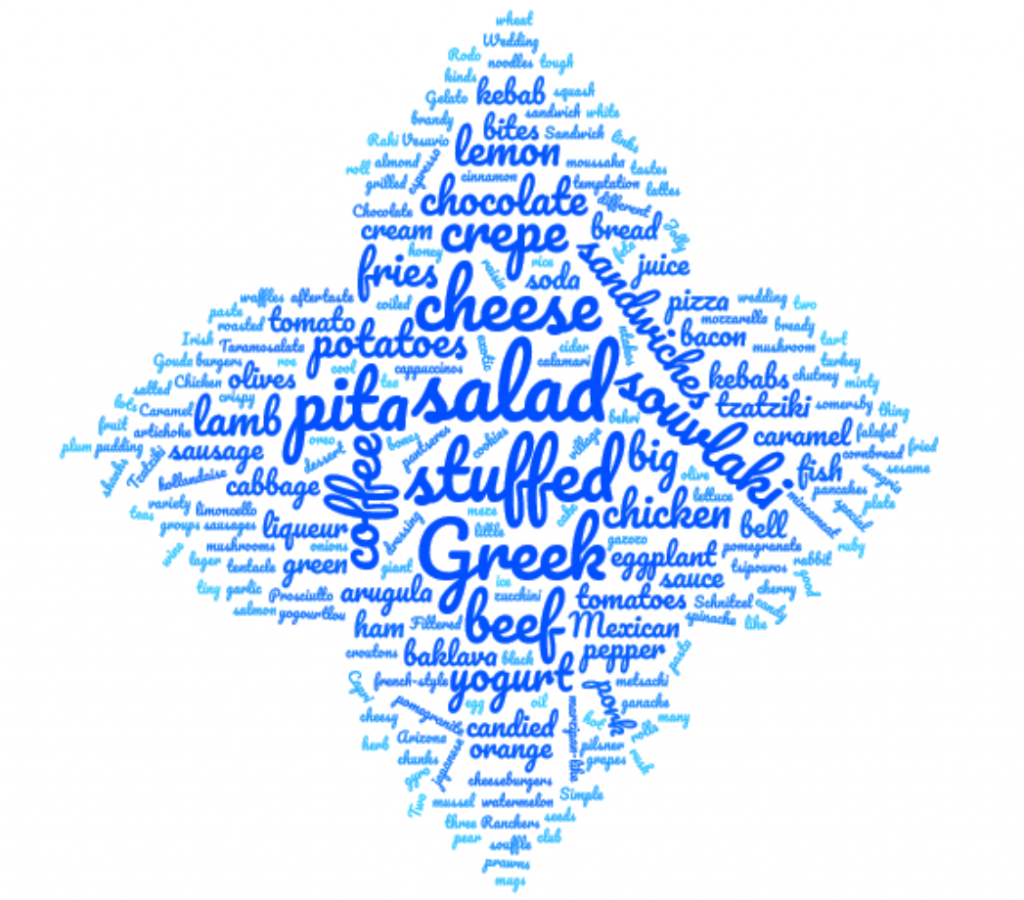
All in all, data-driven vacationing is, for the analytically-minded, a way to both create a grand vacation from the start, and to remember it better after the fact.
Here’s both the spreadsheet and photos if you want to see the whole story of my traipsing through the ancient sites of Greece! Hopefully I’ll write down something about the actual trip next time.
Happy Traveling!
John